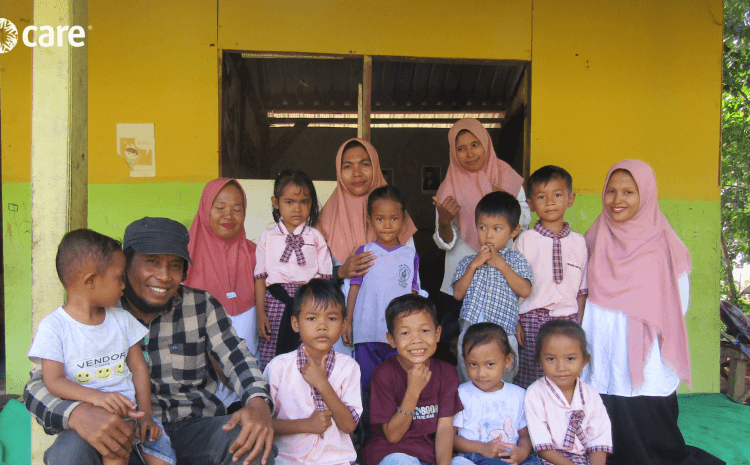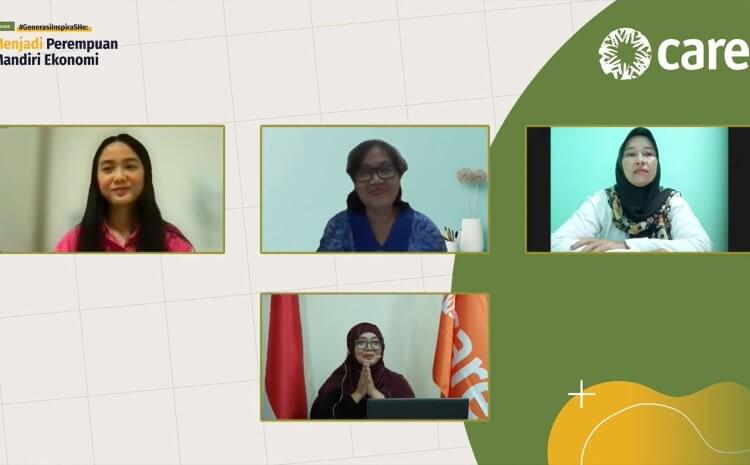The male and female workers of PT Dasan Pan Pacific Indonesia in Sukabumi District, West Java, flocked to the employee canteen that afternoon (4/5). Unlike usual, the workers didn’t immediately head home after work but instead eagerly listened to discussions and participated in a series of activities. Around 400 workers enthusiastically took part in the event.
“Nowadays, women shouldn’t be inferior to men. Even though we work in a factory, our outcomes must be more successful, we must be optimistic,” stated Rosidah, the Production Manager of PT Dasan, while encouraging female workers and kicking off a discussion session as part of the series of activities for Gender Equality, Health, and Women’s Rights Awareness, commencing Kartini Day and International Labor Day. Furthermore, Rosidah emphasized the importance of gender equality in relationships between women and men, both in the workplace and at home. According to her, PT Dasan strongly supports providing facilities and equal opportunities for both female and male workers.
Three days later, on May 7th, more than 300 workers from PT Glory Industrial Semarang in Demak District, Central Java, joined a similar event. During their lunch break, the workers crowded the employee canteen and enthusiastically participated in a series of activities such as presentations, discussions, and competitions. Opening the event, Sentosa Karo Karo, HR Manager of PT Glory, emphasized the importance of gender equality, especially at home. “If both husband and wife work and come home, household chores should be shared. Men and women should collaborate,” he stated. Sentosa added that equal access to information, career opportunities, and the ability to voice opinions have been implemented at PT Glory, which has a majority of female workers.
Although Kartini Day and Labor Day are celebrated annually in Indonesia, gender inequality, including in the workplace, remains prevalent. Yohana Tantria, Project Manager of Yayasan CARE Peduli (YCP), pointed out that men and women are still socially differentiated or constructed based on physical characteristics, traits, roles, and responsibilities in society. For example, when it comes to roles and responsibilities, women are often associated with domestic duties, while men are expected to be the breadwinners. “In reality, the roles of men and women in society can be interchangeable. However, they seem fixed, as roles and responsibilities are attributed to women and men due to social and cultural constructs. Yet, the only difference between men and women lies in their biology, which is gifted and universally applicable,” Yohana stated.
Furthermore, Yohana elaborated on the perception stemming from societal or cultural constructs that persist over generations, which often lead to unfair and unequal relations between men and women, both within households, workplaces, and communities. “Injustice frequently occurs. For instance, women are often saddled with the responsibility of childcare. Even if women work, they are still expected to care for the children. This is what we call a double burden. Meanwhile, if men work, they are not expected to engage in household chores because, according to societal norms, men do not have responsibilities for domestic work. Another example of injustice is the presence of various forms of violence, including physical, psychological, and sexual. Another form of injustice is the marginalization or sidelining of women, especially concerning access to life resources and opportunities such as education and employment. Therefore, CARE collaborates with companies, including PT Dasan and PT Glory, to strengthen gender equality in the workplace, allowing women and men to work equally and comfortably without violence, thus enhancing productivity and work output,” Yohana stated.
In addition to explanations and discussions, the importance of equal participation between men and women is also promoted through various activities, including cooking contests. Thaufiek Zubahary, Gender Specialist at YCP for the project in Sukabumi District, explained that the cooking contest was conducted in two versions: a cooking video contest with partners and a cooking contest for male workers. The cooking video contest, which was a continuation of the healthy nutrition education activities for female workers, was participated in by a total of 10 workers from PT Dasan and PT Glory. “For PT Dasan, 5 winners were selected based on the quality of the video, the menu cooked, and the collaboration between men and women during the cooking process,” he said. Meanwhile, the cooking video contest at PT Glory had 4 video winners. “All participants from PT Glory were female workers. All of them received prizes. The winners were judged based on the uniqueness of the menu and the quality of the video,” said Risca Dwi Ambarsari, Gender Specialist at YCP for the project in Demak District. This cooking contest for men is part of engaging men and socializing gender equality to workers, emphasizing that cooking is the responsibility of both men and women or spouses in the household. Promoting social norm changes towards gender equality is the main goal of these activities.
The excitement of the event heightened as the winners of the cooking video contest were announced. The workers cheered and showed support for their colleagues who recreated the dishes they made in the video. A 5-minute time limit was given to remake the menu, ensuring that it met essential nutritional elements such as carbohydrates and protein.
The excitement continued with the cooking competition for male workers. Each group consisted of 2 male workers, totaling 3 groups, participating in the cooking contest at PT Dasan and PT Glory. Similar to the cooking video contest, the dishes had to be nutritious, easy, and quick to cook. Various menus were prepared within a 10-minute time frame, including capcai vegetable stir-fry, sautéed bean sprouts with chicken, stir-fried water spinach, fried fish with soy sauce, and spiced chicken. “Through this cooking competition, we can see that gender equality can start at home. Men and women can collaborate. If the wife is tired, the husband can help with cooking, making the atmosphere at home better. Mothers can also be healthier and less prone to illness,” said Rosidah, while acting as a judge and tasting the dishes prepared by the workers at PT Dasan.
After the judging process, the winning group for the cooking contest among male workers was announced. Cheers and applause from other colleagues echoed throughout the area as prizes were awarded.
A slightly different activity took place at PT Dasan, where the workers also participated in TikTok and Karaoke contests with a gender equality theme. Various songs such as Kartini, Laskar Pelangi, Lagu Pembebasan, and even Manuk Dadali were performed by the workers excellently. According to Rosida, the management of PT Dasan suggested this additional contest because they observed a great interest among the workers. “The workers here really enjoy karaoke, especially now with the TikTok trend, so we believe this contest can pique their interest and engagement,” she said.
Positive responses gained from all workers who joined the activity. They hoped similar activities to be conducted more frequently so they can further understand gender issues and apply them in both their personal and professional lives. “It’s important to have equal roles for women and men so there are no differences. During my time at PT Glory, everything is the same, from rules to treatment. In today’s activity, I’m most pleased because there’s camaraderie among all workers, and I gained new insights about gender,” said Ahmad Kukuh, a worker at PT Glory who won first place in the cooking contest for male workers.
Aman, a worker from PT Dasan, also shares the same sentiment. According to him, women have the same rights as men and should be respected and not belittled. “It’s important for men to always strive to be kind and respectful to their wives, including in cooperating with household chores such as cooking. The responsibility of cooking isn’t solely on women but also on men, to ensure that the family receives adequate nutrition and nourishment,” he said.
The female workers at PT Dasan and PT Glory also felt they gained new insights from the gender socialization event. For instance, Lina, a worker from PT Dasan, admitted to having a better understanding that both male and female workers have equal rights. “There should be no discrimination in the workplace or at home, so the treatment between men and women should be the same,” she said while holding her prize as the 1st place winner of the cooking video contest. Similarly, Siti Halimah, a female worker from PT Glory, expressed her gratitude for the gender socialization activities as she gained a new understanding not only about gender but also about work regulations and the importance of nutrition for her family. “Through the activities organized by CARE, I understand better how to behave in my family as well as being a female worker in the factory, including work regulations that I didn’t know before, and the importance of providing good nutrition for the family. CARE’s activities involve practical aspects, making it clearer than the previous training I attended, which was purely theoretical,” she explained.
Education and socialization regarding gender equality will continue to be carried out for the garment industry, especially at PT Dasan and PT Glory. According to Yohana, collaborating with company management to formulate activities that are most suitable for the company and its employees, as well as actively involving the workers, will be the focus in the future. “The hope is that through today’s educational activities, workers will have a more open understanding and easily accept the points we convey. Various activities will continue to be carried out in the future to strengthen gender equality in the workplace,” Yohana concluded.
Writer: Swiny Adestika














